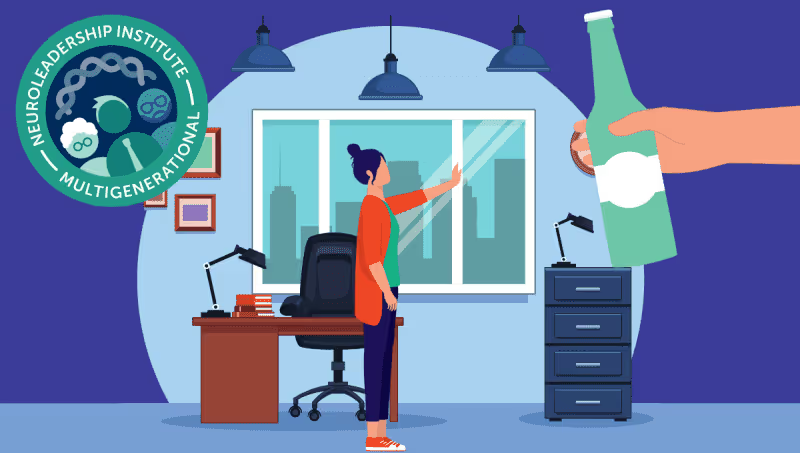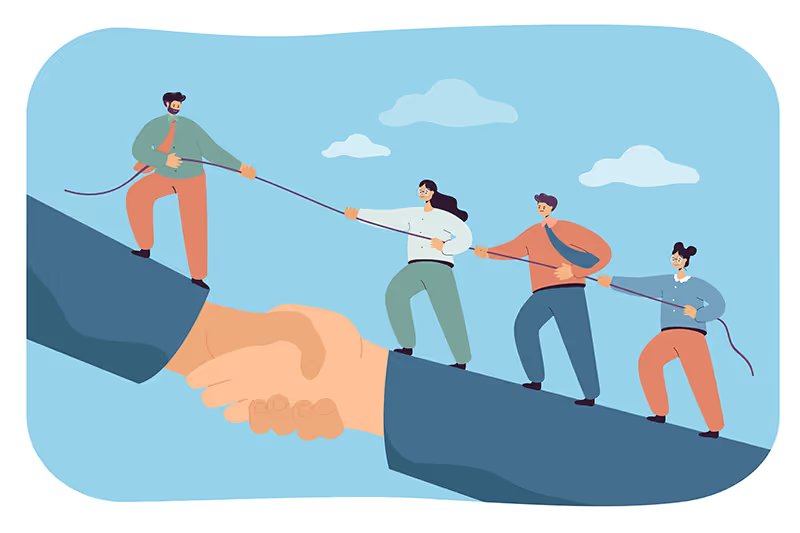Encouraging employees to socialize has benefits, but it’s time to rethink how it’s done.
Recently, it’s been reported that Gen Z is taking a stand against socializing with co-workers. Under the headline “Gen Z Party Poopers Have Ruined After-Work Drinks,” the New York Post quoted several young millennials and Gen Zers who prefer to maintain distance between their work and personal lives. Elsewhere, a TikTok user named Sarah posted a now-viral video claiming her company had issued an ultimatum: Socialize with co-workers after hours or get fired. So she quit. Also on TikTok (the platform of choice for many Gen Zers), user Ben went viral with a video offering the career advice, “Do not go out to drink with your peers. Do not hang out with your peers socially. Do not go out during happy hours. Go to work, go home.”
But is Gen Z (those born roughly between 1997 and 2012) really more anti-social toward co-workers than previous generations, or are they simply taking the blame — as younger generations often do — for a larger workplace trend? A recent survey of 1,000 workers of all ages ranked relationships with co-workers the least important of 14 factors in job satisfaction (compensation and work-life balance were most important). In the same survey, two-thirds of employees who worked at companies that experienced high turnover said it had become less worthwhile to socialize and get to know their co-workers — after all, who knows how long they’ll stick around?
The shift to remote work undoubtedly made work friendships less of a priority, as people no longer made plans for lunch or drinks after bumping into each other in the hallway or chatting around the coffeemaker. With a return to the office, some are stepping back into these old habits. But for Gen Z — many of whom entered the workforce during the pandemic and, therefore, never experienced in-person workplace interactions — such socialization can feel awkward and unnatural. And for the many others still working from home, logging off their computers at the end of the day and traveling to a restaurant across town — or even partaking in virtual happy hours without leaving home — can feel like just another extension of work.
People of all ages can find after-work socialization draining. As a 53-year-old Gen Xer told The Wall Street Journal, “I don’t want to put in eight, nine, 10 hours and go out and have a beer — and talk about work for another four hours.” As the pandemic caused us all to rethink our priorities, many now prefer to spend their non-working hours with those who don’t remind them of work: family, friends, pets, or just themselves.
Building social capital
To be sure, there are many advantages to socializing with co-workers. For one thing, work is more enjoyable if you like and feel connected to your colleagues. This relatedness develops more naturally if you know something (and show you care) about a person’s life outside of work. You never know what commonality you might discover while engaging in small talk with a co-worker. Moreover, research has shown that small talk enhances employees’ daily positive social emotions, which, in turn, heightens organizational citizenship behaviors and improves well-being.
Another survey revealed that people who have close workplace friends are more likely to be satisfied with their employment and less likely to look for another job. Socializing with co-workers can also be a way to learn new skills or pick up institutional knowledge in an informal setting. Getting to know someone outside of work can make it easier to communicate effectively when working on a project. And finally, networking with your boss and co-workers after hours could advance your career by increasing the likelihood of promotions, raises, and new job opportunities.
Encouraging employees to socialize has obvious advantages, but it’s clear the traditional “drinks at the bar after work” isn’t for everyone. To build a more inclusive networking culture, leaders should consider the following when planning social events:
Make it optional
Forced socialization isn’t fun, and being told to “socialize or else” threatens an employee’s autonomy. While a leader should ensure that each team member feels welcome, they shouldn’t make it an unwritten job requirement or penalize employees if they don’t attend a social event.
Don’t make it alcohol-centered
Although some people like to unwind with an alcohol beverage, others choose not to drink for religious, cultural, personal, or health reasons. So sipping a soda while everyone else is living it up at the bar can feel uncomfortable and exclusive. Instead, organizations should plan social activities that cater to a variety of interests, for example, bowling, sports, games, cooking classes, or escape rooms.
Make it during work hours
Respect that many people have family and other obligations after work, or maybe they just prefer to keep their work and personal time separate. So don’t cut into their evenings or weekends with work activities, no matter how “fun.” Instead of an after-hours holiday dinner, for example, plan a workday luncheon or afternoon desserts.
Mix up group size
Typical work social events — think large groups in noisy locations — can be exhausting for introverts and make them feel invisible. Instead, plan some social events where a larger group breaks up into teams of two or three people, which allows everyone the opportunity to get to know their coworkers on a deeper level.
Throughout history, it’s been common to blame the youngest generation for changes in the workplace. However, it’s becoming increasingly clear that workers of all ages aren’t enjoying after-work drinks as much as they used to (if they ever did), so organizations must find other ways to encourage the social bonding and relatedness that is so important for company culture and employee engagement.




.avif)



